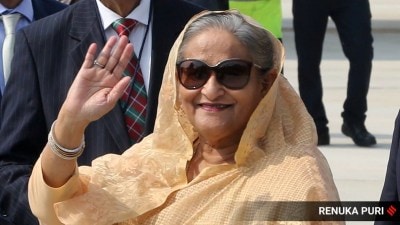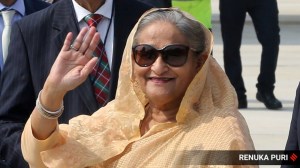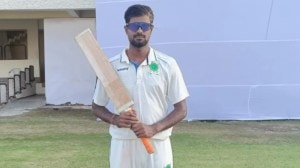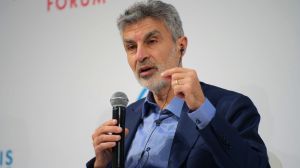High incidence of child abuse in Indian families
NEW DELHI, May 20: A survey conducted by the non-governmental organisation, Samvada, through workshops with school and college-going girls, ...

NEW DELHI, May 20: A survey conducted by the non-governmental organisation, Samvada, through workshops with school and college-going girls, between the ages of 14 and 21, found a high incidence of child sexual abuse (CSA) in Indian families.
“There is sufficient evidence to indicate that CSA cuts across families from all sections of society irrespective of class, caste, ethnicity and religion,” said the report titled Childhood Sexual Abuse of Girls.
The results of the survey, complied by Anita Ganesh with Lucy Kumar, Arun Kotenkar and Dr Shekar Seshadri, were presented to The Population Council here recently. The findings have been put together from first-person accounts of female respondents, often revealing shocking and traumatic incidents.
While 83 per cent of the respondents have faced physical eve-teasing, the survey showed that 13 per cent of them were less than 10 years old when the incidents happened. And 47 per cent of the respondents were found to have been molested or experienced sexual overtures by family members, of which 18 per cent when less than 10 years old.
One of the respondents says in her account: “Eve-teasing has become an almost daily experience and I have learnt to forget about it no sooner than it happens, but the physical abuse which I have gone through five times was done by ….called my relatives. These persons abused me at different times. The first incident happened when I was eight years old.”
Fifteen per cent of the respondents have experienced serious forms of sexual abuse, including rape, and 31 per cent of them were less than 10 years old. Worse still, the survey found that as the seriousness of the abuse increases so does the tendency for self-blame. “The tendency to blame the self also increases as we go down the social ladder and move from urban to rural representation,” the report said.
The report also refers to the shocking case of a 17-year-old engineering student who was brought to a psychiatric hospital for refusal to go to college. She had become extremely fearful, developed panic attacks and had a pervasive sense of anger toward her male classmates.
“During therapy, it was revealed that she had been raped by her uncle when she was 11 years old and threatened with dire consequences if she let anybody know. The uncle continued to be a frequent visitor to the household.
She developed a feeling of insecurity. These feelings became markedly exaggerated when she left her all-girls’ school to join college where she had to interact with the opposite sex…,” the report recorded.However, the report points out that most of those abused grow up to be normal functioning adults where scars heal over time with love and emotional security.
Many of the responses from the victims contained expectations of what they felt should be done about CSA. These mainly centred around the need to prevent abuse, need to punish abusers and the need to be able to talk more openly about sexual issues.
One of the most interesting observations the survey analysts make on this is that several girls have mentioned need for a law to be enforced and a need to punish abusers as an act of deterrence. However, not a single law student has talked about the need to punish abusers.
“This is, perhaps, because the former were reacting from an emotional need to punish, while the law students were responding from a realistic understanding of the limitations of the law and trauma of the victim in a prosecution,” Ganesh concludes.
Reversely, data indicates that a third of the adults with marital or emotional disorders, had been victims of sexual abuse during childhood. The extent of the psychological damage these experiences cause is reflected in the fact that 67 per cent of female criminals had been sexually abused as children, the report quotes a survey done by the Mumbai-based NGO, Nirmala Niketan, in this respect.



- 01
- 02
- 03
- 04
- 05




























